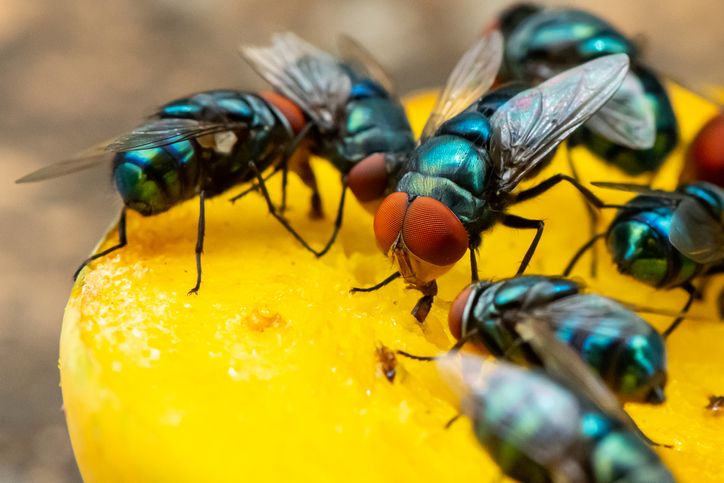Jakarta –
Often food infested with flies is still consumed. Many people don’t feel that the landing of flies has an effect on the quality of food, even though in fact that’s not the case. This is what the experts say.
Flies are insects whose presence is undesirable, especially in places where you eat. Apart from disturbing the atmosphere, the presence of flies also has the potential to contaminate food.
Unfortunately, many food business owners still ignore the existence of flies. They didn’t try to get rid of it, they even let the flies land on the food.
ADVERTISEMENT
SCROLL TO CONTINUE WITH CONTENT
Some people may be uncomfortable about this, but it turns out that many people take flies landing on food lightly. They do not hesitate to eat food even though it is infested with lots of flies.
So what are the facts? Is eating food that has been infested with flies safe for your health?
Quote Reader’s Digest (17/8/2024), a public health epidemiologist and entomologist, aka entomologist, explained it. He said that when flies land on food, they carry feces and other body fluids with them.
What happens when flies land on food
 Photo: iStock Photo: iStock |
You may have heard rumors that flies will vomit when they land on food. This rumor turned out to be true.
Brian Labus of the School of Public Health at the University of Nevada, Las Vegas said, “When a fly eats, it has to regurgitate digestive enzymes onto the food.”
“These enzymes also contain the remains of the last food they ate, and that may be food that is full of pathogens. Flies eat some pretty disgusting things,” Labus continued.
Before the fly vomits, this insect will use its antennae to taste food with taste sensors located on its legs. Entomologist Julian Shepherd, PhD at Binghamton University, revealed that if a fly likes the taste of the food, it will stick out its tongue.
Flies will also coat the food they land on with saliva containing digestive enzymes (a type of vomit). Not only that, according to Shepherd, flies also like to defecate in food.
Diseases spread by flies
When flies land on food, they can spread salmonella E. coli, parasites and dysentery. A 2023 study published in the journal Microorganisms found that flies can transmit bacteria, including types of bacteria that are resistant to antibiotics.
“Houseflies function as vectors to move diseases from one place to another,” explained Labus, who was not involved in the study. “Because we live together, they can spread many different pathogens between humans, animals and the environment,” he continued.
On the plus side, flies can only spread a small number of germs. And fortunately, when it comes to food poisoning, the dose determines the poison.
More details on the next page.






